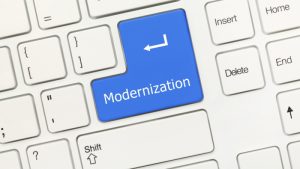
Just as cloud computing upended how government buys technology, agencies are now having to adapt to acquire fast-evolving artificial intelligence (AI) technology. AI is proving to be a key tool in helping government improve the efficiency and connection of its workforce and deliver improved service to citizens, but the promises of this new technology come with risks. To ensure AI solutions are secure and ethically designed, agencies are implementing a number of guardrails to ensure the safe and effective use of powerful technology.
How to Use AI
The Office of Management and Budget (OMB) developed a policy document to harness the benefits and mitigate the risks of AI for Federal agencies. This guidance provides details on how to use AI securely and effectively with a focus on five key areas: risk management, transparency, responsible innovation, workforce, and governance. Continue reading




 There's no shortage of mandates and guidance related to modernization-PMA, Technology Modernization Fund, FITARA, Cyber EO, CX EO-pushing the government to update how they deliver services online, but what does it really mean, and what is involved?
There's no shortage of mandates and guidance related to modernization-PMA, Technology Modernization Fund, FITARA, Cyber EO, CX EO-pushing the government to update how they deliver services online, but what does it really mean, and what is involved? Shared Services in government is nothing
Shared Services in government is nothing

